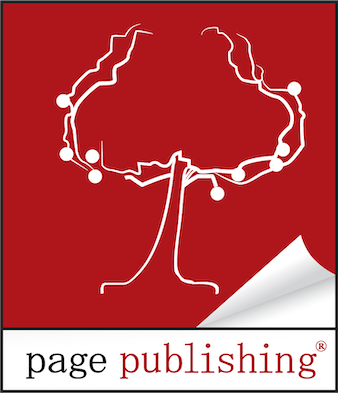
Why “Just Self-Publish on Amazon” Isn’t Enough Anymore

There was a time—let’s call it the Kindle Gold Rush—when simply uploading your book to Amazon’s Kindle Direct Publishing (KDP) platform was enough to launch a successful writing career. Authors hit “publish,” watched the downloads roll in, and in some cases, walked away with bestseller badges and passive income dreams come true.
But that era has shifted. The self-publishing landscape is no longer the wide-open frontier it once was. And if your entire plan is just “self-publish on Amazon,” you might be setting yourself up for disappointment. Not because Amazon isn’t still a powerful platform (it absolutely is), but because the game has changed—and so have reader expectations, market saturation, and the definition of success.
Here’s why “just self-publish on Amazon” isn’t enough anymore—and what serious authors need to do instead.
1. The Market is Oversaturated
There are millions of books on Amazon. Thousands more are added every single day. Once, the simple act of self-publishing gave you an edge. Now? You’re one voice in a very loud, very crowded room.
Readers are overwhelmed with choices. If your book doesn’t stand out with a professional cover, a sharp blurb, strong metadata, and a solid launch plan, it’s going to drown in a sea of titles. Amazon’s algorithm rewards visibility—but visibility is no longer guaranteed. It must be earned.
2. Quality Expectations Are Higher Than Ever
Gone are the days when readers would tolerate typos, clunky formatting, or amateur covers just because a book was $2.99. Today’s readers are savvy. They expect indie books to be indistinguishable from traditionally published ones in terms of quality.
If you’re not investing in professional editing, formatting, and cover design, you’re not just doing your book a disservice—you’re sending a signal to readers that it’s not worth their time. First impressions matter. And in a saturated marketplace, quality is your most powerful differentiator.
3. Amazon Is Just One Platform
Yes, Amazon dominates digital book sales. But relying solely on one retailer—especially one that can change its rules, algorithms, or royalty rates without notice—is a risky strategy.
Wide distribution (Apple Books, Kobo, Barnes & Noble, Google Play, etc.) opens your work to new audiences and more global markets. Audiobooks, print books, direct sales from your website, subscription models—these are all part of a modern indie author’s ecosystem. Diversification isn’t optional anymore; it’s survival.
4. Algorithms Alone Won’t Save You
Amazon’s recommendation engine used to be the secret sauce. But in today’s environment, it’s less reliable and more competitive. If you’re not actively driving traffic to your book—through newsletters, social media, ads, or collaborations—you’re relying on an algorithm that now favors consistent performance, not one-hit wonders.
Amazon rewards momentum. That means planning launches, promotions, and steady content production. “Publish and pray” is not a strategy. You need to build your own audience and bring them with you—because Amazon won’t do it for you.
5. Your Author Brand Matters More Than Ever
Publishing a single book on Amazon doesn’t build a career. It doesn’t establish your brand. In a crowded market, readers don’t just buy books—they buy authors. They want to connect with you, follow your journey, subscribe to your newsletter, and know what’s coming next.
Treating your writing like a business means thinking long-term: website, mailing list, branding, community, reader engagement. These aren’t just “extras.” They’re the infrastructure for a sustainable author career.
6. Marketing Is No Longer Optional
Marketing used to be the dreaded “other job” of the author world. But in 2025, marketing is part of the writing process. It’s how your work finds readers.
That doesn’t mean you have to do TikToks if you hate being on camera. But it does mean finding authentic, consistent ways to connect with your audience—through blogging, podcast interviews, social media, email marketing, or paid ads. You can outsource parts of it. You can take it slow. But you can’t ignore it.
7. Readers Are Looking for Community, Not Just Content
More than ever, readers want to feel like they’re part of something. Whether it’s a cozy mystery series they can binge, an author newsletter that feels like catching up with a friend, or a Discord where they can chat about character theories, community is currency.
Amazon doesn’t give you community. That’s on you. The good news? Tools like Substack, Patreon, Ream, and even Kickstarter now let authors create reader-driven ecosystems. The most successful indie authors are the ones who aren’t just publishing—they’re building relationships.
So What Should You Be Doing?
If “just self-publish on Amazon” is the old mindset, what’s the new one?
Think beyond the upload. Think like a publisher. Think like a brand.
Here’s a modern roadmap:
- Start with a plan: Know your audience, your genre expectations, and your goals.
- Invest in quality: Professional editing, design, and formatting are non-negotiable.
- Build an author platform: Website, mailing list, social presence—start small, but start early.
- Launch intentionally: Build buzz before you publish. Use preorders, ARC teams, and early reviews.
- Diversify your presence: Go wide, explore new platforms, and don’t rely on a single point of sale.
- Engage with your readers: Treat them like part of the process, not just buyers at the end.
- Keep learning: Publishing evolves fast. Stay curious and adapt as needed.
Final Thoughts
Self-publishing is still powerful. Amazon is still an incredible tool. But neither of them are magic bullets anymore.
Today’s successful authors aren’t “just” self-publishing—they’re running author businesses, cultivating audiences, and producing professional-level work. It takes more effort, yes—but it also offers more reward, more control, and more creative freedom than ever before.
So if someone tells you to “just self-publish on Amazon,” smile and nod. Then go build something bigger.
Want help building that? I’ve got tips. Just say the word.





